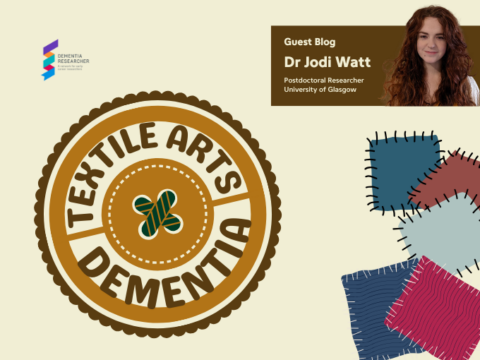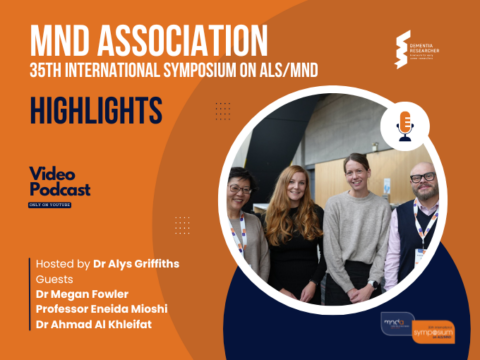Receiving a diagnosis of dementia is life changing, in many ways, for the person and their family and friends. Learning to live with the diagnosis can be challenging, upsetting, and complex. In addition to this, people with dementia and their family members are prone to experiencing depression and anxiety as they adjust to the changes brought by the condition.
There is a clear need for emotional and practical post-diagnostic support, and counselling offers one way to deliver this. Counselling is a talking therapy involving regular sessions between a therapist and a client, to discuss and make sense of experiences, find ways of coping, and where possible, resolve specific issues. For people affected by dementia this may focus on working through feelings of loss and social isolation, role change from partner to carer, and coping with deteriorating health. The therapist role is to support clients through listening, showing empathy and warmth, and engaging in discussion.
Our recent systematic review identified mixed evidence for the benefit of counselling for people with dementia and/or family members, on a range of outcomes including depression and quality of life. However, very little research considered the thoughts, feelings, or experiences of the people who received the interventions.
We sought to fill this gap in understanding by exploring experiences of an individual counselling intervention for people affected by dementia, using their first-hand perspectives. We wanted to give participants the opportunity to explain what counselling meant to them, rather than looking at changes in pre-determined outcomes. We interviewed 6 people with dementia and 23 people who cared for a relative with dementia, before and after a 12-week counselling intervention.
 Our results found four main areas of importance for participants. Firstly, the expectations and outcomes of counselling. There was a sense of urgency in seeking counselling whereby participants expected improvements in their mental health and quality of life as a result of the intervention. Participants were focused on acceptance of the diagnosis as a key outcome. The ‘burden’ of dementia was considered in the context of the emotional impact of life with dementia. They worried about being a burden to others, the burden of coping with dementia, and the additional life pressures aside from having caring responsibilities. People noticed changes in their own personality and behaviours, and benefitted from being able to talk through these. Participants reflected on appraisals of their identity, as counselling encouraged them to reflect on who they were. This helped to improve understanding of how to build resilience and focus on self-care, including the importance of having a strong support network. Finally, participants highlighted the importance of the therapeutic relationship, and gratitude for working with a therapist with an existing understanding of dementia. They also appreciated having someone who was an impartial listener and allowed them to feel comfortable to talk openly about themselves and their family.
Our results found four main areas of importance for participants. Firstly, the expectations and outcomes of counselling. There was a sense of urgency in seeking counselling whereby participants expected improvements in their mental health and quality of life as a result of the intervention. Participants were focused on acceptance of the diagnosis as a key outcome. The ‘burden’ of dementia was considered in the context of the emotional impact of life with dementia. They worried about being a burden to others, the burden of coping with dementia, and the additional life pressures aside from having caring responsibilities. People noticed changes in their own personality and behaviours, and benefitted from being able to talk through these. Participants reflected on appraisals of their identity, as counselling encouraged them to reflect on who they were. This helped to improve understanding of how to build resilience and focus on self-care, including the importance of having a strong support network. Finally, participants highlighted the importance of the therapeutic relationship, and gratitude for working with a therapist with an existing understanding of dementia. They also appreciated having someone who was an impartial listener and allowed them to feel comfortable to talk openly about themselves and their family.
Overall, our research suggests that counselling may provide vital support and lead to positive experiences for people affected by dementia. Such benefits may not be easy to quantify through standardised measures, emphasising the need for research which includes the first-hand experiences of those involved. There is clearly a huge emotional impact associated with a diagnosis of dementia, yet very little support is currently available for those affected. This is a specific area where counselling could help individuals and their families.
Something that this research highlighted to us is that currently there is no dementia-specific content taught within counselling training programmes. As the number of people living with or supporting someone with dementia continues to increase, we would expect to see more people seeking counselling to help them come to terms with their situations. In-depth training and guidance is needed for therapists, to ensure that they are able to provide appropriate support to clients whose lives are affected by dementia. This is particularly important as people with dementia have been labelled as ‘beyond therapeutic reach’, meaning that they would not be offered counselling-based interventions. We challenge this presumption, as our research has demonstrated that people with dementia can meaningfully participate in counselling interventions and build a therapeutic relationship with their therapist. However, we do acknowledge the challenges that memory loss presents for counselling. Therapists with the expertise to gain in-depth understanding of each individual, their specific needs and the way they communicate, will allow people with dementia to benefit from counselling.
In summary, our research explored how people with dementia and their family members experienced counselling interventions, in their own words. We hope to use this knowledge to develop further research exploring current opportunities for counselling that are offered to people with dementia via the NHS across the UK.
Review the paper discussed in this article, here in the Journal of Dementia.
Mae derbyn diagnosis o dementia yn newid bywyd mewn llawer o ffyrdd i’r person a’u teulu a ffrindiau. Mae dysgu sut i fyw gyda diagnosis yn gallu bod yn heriol, yn drallod ac yn gymhleth. Yn o gystal a hyn, mae pobl gyda dementia ac aelodau o’u teulu yn dueddol o gael iselder ac orbryder tra mae nhw yn addasu i’r newidiadau sydd yng nglŵm a’r cyflwr.
Mae yna angen clir am cymorth ôl-ddiagnostig ac mae cwnsela yn cynnig un ffordd o wneud hyn. Mae cwnsela yn therapi trwy siarad gyda sesiynau yn aml rhwng y therapydd a’r client er mwyn trafod a gwneud synnwyr o brofiadau, darganfod ffyrdd o ymdopi a lle mae’n bosib datrys problemau penodol.
I bobl sydd wedi cael eu heffeithio gan dementia gall hyn ganolbwyntio ar weithio drwy teimladau o golled a arwahanrwydd cymdeithasol, newid rôl o bartner i ofalwr, ac ymdopi gyda iechyd sydd yn gwaethygu. Rôl y therapydd ydi cefnogi cleientiaid trwy wrando, dangos empathi a cynhesrwydd ac trafod.
Gwnaeth ein adolygiad systematig diweddar ganfod tystiolaeth cymysg ar gyfer bydd cwnsela ar gyfer pobl gyda dementia ac/neu aelodau teuluol, ar nifer o ganlyniadau yn cynnwys iselder ac ansawdd bywyd. Ond nid oes llawer o tystiolaeth wedi cysidro meddyliau, teimladau neu’r profiadau o’r bobl sydd wedi eu derbyn.
Rydym wedi ceisio llenwi y bwlch mewn deallusrwydd trwy archwilio profiadau o gwnsela unigol ar gyfer pobl sydd wedi cael eu heffeithio gan dementia, yn defnyddio eu profiadau uniongyrchol. Roeddem eisiau rhoi cyfle i’r gyfranogwyr rhan i esbonio be roedd cwnsela yn golygu iddyn nhw. Wnaeth ni gyfweld 6 o bobl efo dementia a 23 o bobl oedd yn gofal am aelod o’r teulu efo dementia, cyn ac ar ôl ymyriad cwnsela 12 wythnos.
Roedd pedwar prif ardal pwysig i’r bobl oedd yn cymryd rhan. Yn gyntaf, y disgwyliadau a’r canlyniadau o gwnsela. Roedd teimlad o frys mewn chwilio am gwnsela le roedd y cyfranogwyr yn disgwyl gwelliannau yn eu iechyd meddwl a’u ansawdd bywyd o ganlyniad i’r ymyriadau. Roedd cyfranogwyr yn ffocysu ar dderbyn y diagnosis fel canlyniad allweddol. Roedd y ‘baich’ o dementia yn cael ei gysidro yng hyd-destun effaith emosiynol bywyd hefo dementia. Roeddent yn poeni am fod yn faich i eraill, y baich o ymdopi gyda dementia ac y pwysau ychwanegol mewn bywyd o gael y cyfrifoldeb o ofal. Sylwodd pobl ar newidiadau yn eu personoliaeth eu hunain a’u ymddygiad, ac gwnaethant elwa o fedru siarad am hyn. Adlewyrchodd gyfranogion ar werthusiad o’u hunaniaeth, ac anogodd cwnsela adlewyrchu ar bwy oeddynt. Gwnaeth hyn eu helpu i wella deallusrwydd o sut i adeiladu hydwythdedd ac i ffocysu ar hunan-ofal, yn cynnwys cael rhwydwaith cefnogaeth cryf. Yn olaf adlewyrchodd gyfranogwyr bwysigrwydd y berthynas therapiwtig, a diolchgarwch am weithio gyda therapydd oedd hefo deallusrwydd o dementia. Roedden nhw hefyd yn gwerthfawrogi cael gwrandäwr amhleidiol oedd yn galluogi nhw i deimlo yn gyfforddus i siarad yn agored am eu teulu.
Yn gyffredinol, mae ein ymchwil yn awgrymu gall gwnsela gynnig cefnogaeth angenrheidiol ac n arwain at brofiadau positif i bobl wedi eu heffeithio gan dementia. Efallai nid yw’r buddiannau yma yn hawdd i fesur gyda mesuriadau safonedig, sydd yn pwysleisio yr angen am ymchwil sydd yn cynnwys profiadau uniongyrchol o’r bobl sydd yn cymryd rhan. Mae effaith emosiynol enfawr yng nglŵm hefo diagnosis o ddementia ond nid oes llawer o gefnogaeth ar cael i bobl sydd wedi cael eu heffeithio. Mae hwn yn ardal penodol lle call cwnsela helpu unigolion a’u teuluoedd.
Rhywbeth gwnaeth yr ymchwil yma amlygu i ni ydi ar hyn o bryd nid oes cynnwys yn benodol i dementia yn cael ei ddysgu o fewn rhaglenni hyfforddiant ar gyfer cwnsela. Fel mae’r nifer o bobl sydd yn byw gyda neu yn cefnogi person sydd hefo dementia yn parhau i godi, byddwn yn disgwyl i weld mwy o bobl yn chwilio am gwnsela i helpu nhw ymdopi gyda’r sefyllfa. Mae hyfforddiant a canllawiau manwl yn angenrheidiol i therapyddion er mwyn sicrhau eu bod yn gallu darparu cefnogaeth priodol ar gyfer cleientiaid sydd wedi cael eu heffeithio gan dementia. Mae hyn yn hyd yn oed fwy pwysig achos mae pobl gyda dementia wedi cael eu label fel ‘y tu hwnt i afael therapi’ sydd yn golygu ni fyddent yn cael cynnig o ymyrraeth wedi eu seilio a’r gwnsela. Rydym yn herio yr rhagdybiaeth yma achos bod ein ymchwil wedi dangos bod pobl hefo dementia yn gallu cymryd rhan yn ystyrlon mewn ymyrraeth cwnsela ac adeiladu perthynas therapiwtig gyda eu cwnseler. Ond rydym yn cydnabod yr heriau mae coll cof yn cyflwyno i gwnsela. Bydd therapyddion efo’r arbenigaeth i ennill deallusrwydd dwfn o bob unigolyn, eu anghenion a’r ffordd maent yn cyfathrebu yn galluogi pobl hefo dementia i elwa o gwnsela.
I grynhoi, gwnaeth ein ymchwil archwilio sut mae pobl sydd hefo dementia a’u teuluoedd yn ymateb i gwnsela yn eu geiriau eu hunain. Rydym yn gobeithio defnyddio y wybodaeth yma i ddatblygu ymchwilio ym mhellach ac archwilio cyfleoedd presennol ar gyfer cwnsela sydd yn cael eu gynnig i bobl sydd hefo dementia trwy’r NHS ar draws y wlad.
Author

Dr Alys Griffiths
Dr Alys W Griffiths is a Senior Research Fellow in the Centre for Dementia Research at Leeds Beckett University. Her research interests are in dementia care, specifically the development, delivery and evaluation of psychosocial interventions, and the measurement of outcomes for people living with dementia. Outside work Alys enjoys running and is a proud supporter of Welsh Rugby.
You can follow Alys on Twitter Follow @alysgriffiths_
Lets us know your thoughts on this paper, and reply in the box below (login / register to contribute)

 Print This Post
Print This Post





